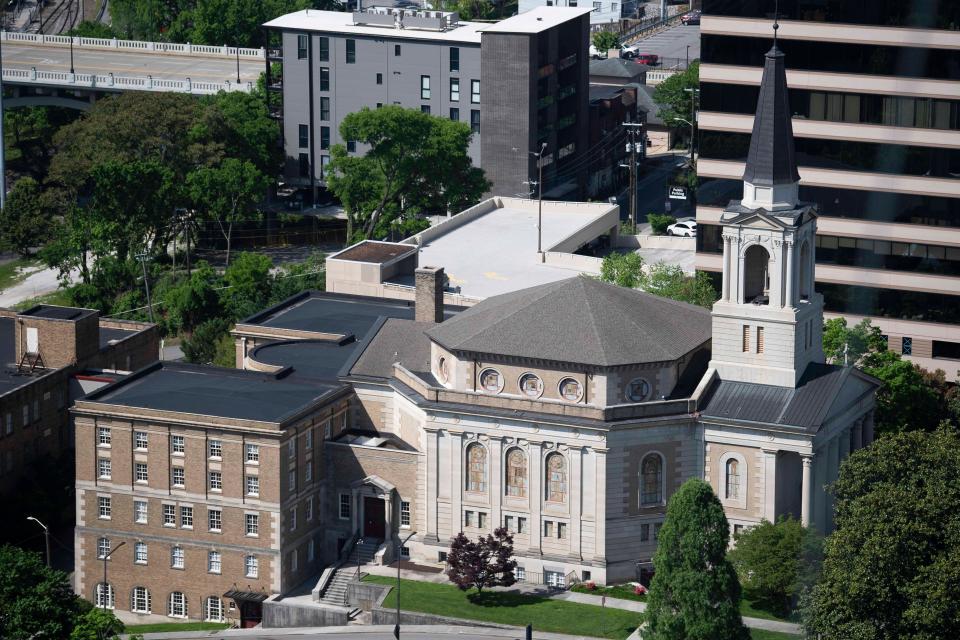A brief history of Knoxville's Black and white churches by the numbers | Opinion
For a number of years I have spoken at and and have been honored by Black and white churches across Knox County. I have been invited to talk about the civil rights movement, urban renewal and subjects suitable for Men's Day activities and Women's Day programs. I have spoken for many church anniversaries.
In 1980 I began to chronicle the histories of the city's oldest Black churches and published a sketch of all those at least 100 years old. Through city directories, church histories, newspapers and other resources, I was able to note the date of their founding, locations, pastors and activities through the years. Some of them were unaware of their earliest history.

In my reading of local newspapers I also learned the histories of many white churches in the county. I copied stories about dedication services and the laying of cornerstones. Those newspapers captured their locations as they moved from site to site. They also gave statistics on membership.
Hear more Tennessee voices: Get the weekly opinion newsletter for insightful and thought-provoking columns.
The Knoxville Journal of Jan. 12, 1890, lists 28 white churches in Knoxville with a total membership of 5,221. The largest was First Baptist with 513, followed by Church Street United Methodist with 421, Third Presbyterian with 410 and Broad Street United Methodist with 358. Second Presbyterian followed closely with 355.
By 1921 church membership had increased to 34,490 with Black membership included. The Journal of March 4, 1921, said less than half the population was affiliated with a church. Baptists had the largest membership, followed by the Methodists and Presbyterians. "According to the Census, the Baptists have the largest total membership of Black and white with 13,484. Methodists come next with 10,481, and Presbyterians have a total membership of 4,750.

Your state. Your stories. Support more reporting like this.
A subscription gives you unlimited access to stories across Tennessee that make a difference in your life and the lives of those around you. Click here to become a subscriber.
"Christian, Episcopal and Roman Catholics come next, each having around 1,000 members. Jews, Lutherans, United Brethren, Seventh-day Adventists, Friends Swedenborgian, Salvation Army, Church of God, Christian Scientists, and the International Bible School have less than 1,000 members. Methodists have 40 churches, Baptists, 36, Presbyterians, 12, and all others less than a dozen churches each."
In 1921 Knoxville had 116 churches. There were 28,181 white members and 6,304 Black members. Almost a hundred years later, the News Sentinel of Oct. 20, 2019, reported the top 12 churches of Knoxville based on membership and announced that Faith Promise was the largest with 7,302 attending Sunday services. Cokesbury United Methodist followed with 3,997, and the Cathedral of the Most Sacred Heart of Jesus was third with 2,600.

THE LATEST NEWS RIGHT AT YOUR FINGERTIPS
Get the latest local news, sports scores and more directly on your phone. Download the free Knox News mobile app.
Those top 12 churches have a total of 26,316 Sunday worshippers. How that total compares with the members of several hundred smaller churches here is virtually impossible to know. Many of them have several hundred members while some have fewer than a hundred. Two or three non-denominational Black churches have grown exponentially while several historic Black churches are in decline or have closed their doors.
Robert J. Booker is a freelance writer and former executive director of the Beck Cultural Exchange Center. He may be reached at 865-546-1576.
This article originally appeared on Knoxville News Sentinel: A brief history of Knoxville's Black and white churches by the numbers

